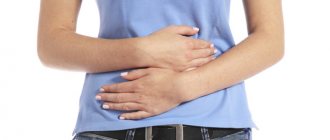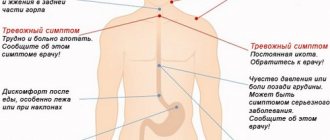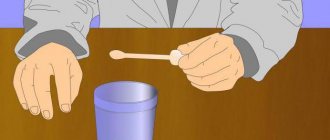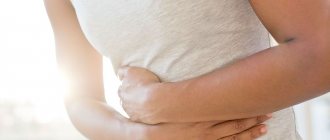Is this a pathology or a variant of the norm?
Each of us knows firsthand about changes in the color, smell and consistency of stool, because everyone experiences indigestion, infections, and constipation at least once in their lives.
But undigested food fragments can cause real panic in some. Under normal conditions, feces do not contain any inclusions, lumps, pieces of undigested food, mucus, blood, etc. Insufficiently digested food can be a consequence of infectious diseases, constipation or indigestion. In most cases, the appearance of undigested food fragments does not mean that a person is sick. It’s just that the human gastrointestinal tract is not able to digest some foods or parts thereof. Why is this happening? To understand this, you need to know at least a little about what happens to foods as they pass through the digestive tract.
The reasons that provoke the appearance of loose stools with pieces of undigested food can be very diverse. Moreover, some of them can be eliminated in a short period of time, while others will require long-term treatment.
Among the main factors leading to pathology are the following:
- eating too much food;
- food has high fat content;
- food of heterogeneous composition, taken at one time;
- qualitative or quantitative disturbances in the production of enzymes;
- an abundance of fiber in the diet, especially indigestible fiber;
- functional dyspepsia (intestinal dysfunction due to stress);
- taking medications that inhibit the functioning of enzyme systems;
- dysbacteriosis;
- accelerated peristalsis of the intestinal wall;
- diseases of the digestive tract (existing or past), especially the stomach and pancreas.
We can also identify risk groups of people predisposed to the appearance of loose stools with food.
These include infants who have an insufficiently formed digestive system, as well as older people and old people who experience intestinal disorders and enzyme deficiency with age.
Another risk group is people who have problems with the functioning of the digestive tract due to internal diseases.
Individual fragments of food may remain undigested under normal conditions. These include: hay from fruits, berries, vegetables, insoluble plant fiber (cellulose, lignin), seeds and others. If, during diarrhea, pieces of regular food come out with stool, then the situation requires the intervention of a specialist.
You should definitely consult a doctor if loose stools with undigested food in adults and children are accompanied by symptoms such as:
- putrid or other odor;
- pain and cramping in the epigastric region;
- increased body temperature;
- blood, pus, mucus, foam in stool;
- rotten burp.
Useful information: Severe heaviness in the right side: all causes of the symptom
A doctor's help will also be required if diarrhea with food remains occurs without these symptoms, but for a long time.
It is important to provide the specialist with the most complete information about the disorder. For example, you will need to track changes in body weight, the presence or absence of appetite, the time of onset of diarrhea, its frequency, connection with food intake, and so on.
Diagnostics
Based on the patient’s complaints, the doctor will collect anamnesis, conduct an examination and prescribe diagnostic tests.
As a rule, at the initial stage you will need to donate blood for a general and biochemical analysis, as well as do a coprogram and bacterial culture of stool.
Among additional diagnostic methods, depending on the data obtained, it is possible to use ultrasound and X-ray examination, sigmoidoscopy and colonoscopy, FGDS and others.
If the digestion process is disrupted due to gastritis with low acidity, then, among other drugs, Omeprazole and drugs directly containing hydrochloric acid may be present. Such treatment will make it possible not only to eliminate diarrhea, but also to stop the progression of the disease.
In the case of colitis or gastroenteritis, diarrhea with undigested food is accompanied by inflammation of the intestinal mucosa. Depending on the degree and type of pathology, treatment with antibacterial agents and anti-inflammatory drugs is indicated.
If the disorder is caused by excessive consumption of ballast substances, it is enough to reconsider the diet. By excluding plant fiber from the menu, you can quickly restore the functioning of the digestive tract.
During the entire period of treatment, regardless of the cause of the intestinal disorder, strict adherence to the diet is required. It involves a complete rejection of foods that irritate the mucous membrane of the digestive tract. These are: spicy and fatty foods and foods, alcoholic drinks, foods containing fiber (soluble and insoluble), carbonated drinks.
As an additional treatment for loose stools with pieces of food, the use of folk recipes is allowed. The main condition for their use is a preliminary examination and diagnosis. It is unacceptable to eliminate diarrhea on your own without knowing the cause of its occurrence, especially in repeated cases of the disorder.
Useful information: Treatment of chronic diarrhea: the best folk remedies
- Chamomile. For a glass of boiling water you will need 10 grams of dried flowers. It is best to insist in a thermos for 5-6 hours. Take a third of a glass 3-5 times a day.
- Eucalyptus. For two spoons of dry leaves, 0.5 liters of boiling water will be enough. Infuse in the same way in a thermos. Take 1/3 cup before meals.
- Mint. Prepare an infusion at the rate of: a glass of boiling water and 3 tablespoons of dry leaves. Drink 100 ml every 34 hours during the day.
It is normal for undigested food particles to be present in an infant's stool. This phenomenon is explained by the imperfection of the infant’s digestive system. In addition, the gastrointestinal tract of a small child is shorter than that of adults. Therefore, the food does not have time to be digested.
The occurrence of loose stools with undigested food in an infant can be caused by improper introduction of complementary foods. Feeding your baby pureed vegetables and fruits too early will cause a corresponding reaction in the form of diarrhea mixed with pieces. The enzymes necessary to digest the new food will not be enough, so the body will “throw it away” as unnecessary ballast.
Prevention
- eat food often, but in small portions;
- adhere to the optimal daily amount of food, avoiding overeating;
- chew food well;
- drink water between meals, not during or after them;
- when taking certain medications on your own, carefully read the instructions;
- do not eat when stressed, while watching TV or at the computer;
- do not eat on the go;
- Consult a doctor in a timely manner if seemingly minor disturbances in the functioning of the gastrointestinal tract appear.
The occurrence of loose stools with food is not a harmless symptom. You should not take it lightly and self-medicate. It is especially important to identify the cause of the disorder in children. Timely diagnosis and proper treatment will help maintain the normal functioning of the digestive tract for many years.
After bowel movements, you may notice undigested food in the stool. Depending on its amount, the phenomenon can be either normal or a sign of disturbances in the gastrointestinal tract. Before you sound the alarm, it's worth understanding.
Several factors can provoke the appearance of undigested pieces of food in the stool. Some causes are temporary and have minimal impact on human health if they are addressed immediately. Others are a consequence of an incorrect lifestyle and advanced illnesses that have moved to a new stage and can disrupt the functioning of the gastrointestinal tract and the body as a whole.
Young children, the elderly, patients with digestive problems, and those who have recently undergone gastrointestinal surgery are especially prone to the problem of undigested food in their stool.
The main reasons for the appearance of undigested food in the stool:
- Binge eating. A large amount of food is much more difficult to digest, especially if it has different composition (proteins, carbohydrates) and is too fatty;
- Cellulose. Plant fiber in large quantities is poorly absorbed by the body and leads to intestinal upset, especially if we are talking about its indigestible variety;
- Medicines. Some medications can inhibit digestive function, reducing the intensity of secretion of gastric juice and pancreatic enzymes;
- Dysbacteriosis. An imbalance between beneficial and opportunistic microorganisms affects a person’s well-being, the functioning of the gastrointestinal tract and, to some extent, is reflected in the feces;
- Enzymes. They are necessary for the breakdown of proteins, fats and carbohydrates, but are not always produced in sufficient quantities. For example, such problems occur in people with pancreas problems, as well as in a newborn child due to imperfections in the body.
- Functional dyspepsia. In an adult, for various reasons, as well as in children, intestinal dysfunction may occur, which leads to an inability to break down and absorb what is eaten;
- Other gastrointestinal diseases. Any disturbances in the digestive system have their consequences, which can be permanent or appear in waves.
There are significant differences between the digestive systems of an adult and a child. In children, undigested food is much more often found in the stool.
In the first months after birth, a baby’s body is not yet able to produce all the substances necessary for complete digestion. The intestinal microflora is just beginning to form, and the stomach is not yet ready to receive roughage.
That is why the diet includes only breast milk and infant formula. In this case, highly fatty milk may not be completely digested, which is manifested by the presence of white lumps in the stool.
Also, an unbalanced diet of a nursing mother may explain why the child’s body reacts poorly to food.
Undigested food in the stool of an adult: causes and treatment of pathology
The digestive tract is the most voluminous system of the body and many indications of a person’s health depend on its work.
The modern lifestyle and the amount of varied, not always healthy, food lead to the fact that people are increasingly experiencing various disorders of the digestive tract, and one of them is undigested food in the feces of an adult.
The causes of this pathology
The presence of undigested pieces in stool may indicate the following problems:
All of the listed pathologies require treatment, since aggravation of the situation can lead to disruption of trophism and the transition of the disease process to chronic.
Changes in stool characteristics
Violation of the color, smell and consistency of feces can speak volumes, since during normal bowel function they should not contain mucus, blood, and especially the remains of undigested food.
The only exception to the rule is the digestion of fiber - this substance is found in greatest quantities in vegetables and fruits and mainly affects the formation of feces.
Long-term bowel dysfunction #8212; reason to see a doctor
For this reason, fibers or individual particles of vegetables and fruits can be excreted from the body in preserved form.
Also, nuts, seeds and cereals that have previously undergone heat treatment can be excreted undigested.
If you can detect residues of other food in your stool, then you should seriously think about visiting a gastroenterologist to eliminate the identified symptoms.
Treatment of pathology
The main type of treatment for decreased pancreatic function is the complete exclusion of alcohol and other substances that can irritate the gastric mucosa.
Drug therapy is based on the initially discovered cause #8212; insufficient production of enzymes. Therefore, in this situation, it would be advisable to prescribe replacement therapy drugs that compensate for the lack of enzymes.
Drugs such as Pancreatin, Mezim-Forte, Creon have a beneficial effect on food digestion by replacing the missing amount of enzymes.
Insufficient gastric juice can be caused by gastritis or decreased functioning of the gastric glands.
There are a number of drugs that can affect the functioning of the gastric glands, namely #8212; strengthen their work.
If the concentration of gastric juice shifts to the alkaline side, it would be appropriate to administer meat broth or replacement therapy, which consists of managing gastric juice, before meals.
You can also provoke an increase in the production of hydrochloric acid using a number of drugs: Etimizol, Pentagastrin.
With accelerated evacuation of stomach contents, diarrhea may occur. This condition can be caused by the presence of foci of inflammation in the digestive tract, which require special examination and further course of treatment.
Treatment of inflammation of the colon and joint inflammation of the stomach and intestines is carried out by prescribing rehydration, antidiarrheal, antimicrobial agents and non-steroidal anti-inflammatory drugs.
Dysbacteriosis
Under the concept of #171;intestinal dysbiosis#187; imply
Medicines will help solve the problem
a complex failure in the normal performance of its function.
Dysbacteriosis syndrome manifests itself due to a violation of the quantitative and qualitative composition of the microflora. In this case, various metabolic disorders and immunological disruptions occur, which manifest themselves in the form of gastrointestinal disorders.
Quite often, this condition occurs after long-term treatment with antibacterial drugs.
Signs of dysbacteriosis are frequent constipation or, on the contrary, a tendency to diarrhea. Sometimes flatulence or intolerance to certain foods appears.
The patient is often plagued by dyspeptic disorders, which manifest themselves in the form of nausea, vomiting and the symptoms described above. The stool contains particles of undigested food and greenish mucus.
Treatment of this pathological condition consists of restoring intestinal motility and stimulating the intestines themselves.
Experts will talk about the causes of bowel dysfunction in the video:
Noticed a mistake? Select it and press Ctrl+Enter to let us know.
Liked? Like and save on your page!
Comment on the material - Undigested food in the stool of an adult: causes and treatment of pathology
Subscription
New entries:
Report a typo
Text that will be sent to our editors:
Your comment (optional):
Read more in Stay Healthy
Lack of magnesium in the body: symptoms, causes, treatment
Recently, modern medicine has become more and more
Etiology
It should be noted that in children in the first years of life, undigested food in the feces does not always indicate the development of one or another pathology, since the gastrointestinal tract is being formed and the immune system is being strengthened. But if your baby’s stool consistency is constant, you should seek medical help rather than carry out treatment yourself.
In general, the manifestation of such a symptom occurs in many gastroenterological diseases, so it is impossible to make a diagnosis based only on the clinical picture, which means that you should definitely consult a doctor at the first manifestations.
When to see a doctor
How to recognize that there are problems with digestion? Normally, small pieces of food end up in the stool undigested. This includes coarse fiber, such as the skins of fruits and vegetables, the hulls of grains, as well as seeds and pits. They help cleanse the intestines and therefore do not pose a threat to health.
At the same time, other foods may also remain unprocessed. For example, in a newborn baby, the presence of curdled masses of undigested milk in the stool is allowed.
You need to worry if adults or children experience the following symptoms:
- unpleasant smell of feces;
- nausea and abdominal discomfort;
- diarrhea;
- bloating;
- belching with an unpleasant odor;
- detection of pieces of food (meat, vegetables, etc.)
- impurities of mucus and blood;
- pain and other unpleasant sensations during bowel movements;
- temperature, which indicates an inflammatory process.
If you have such symptoms, you should consult a doctor to explain the problem and find a way to solve it. If you ignore the long-term manifestation of abnormalities in the gastrointestinal tract, this can lead to the development of chronic diseases that significantly complicate a person’s life.
What food should remain undigested?
Plant foods contain two types of fiber: digestible and indigestible. The first type should not remain in the feces in the form of fragments. If this does happen, it indicates that the stomach is not producing enough hydrochloric acid. The same can be said if the excrement contains almost whole pieces of vegetables and fruits.
So the detection of fragmentary remains of indigestible fiber in the stool does not indicate pathology, it is a physiological phenomenon.
Dysbacteriosis
The above symptoms indicate an imbalance in the intestinal microflora. It is impossible to ignore dysbiosis (it will go away on its own), it must be treated, otherwise the disorders will worsen more and more, and be complicated by the addition of other diseases. In addition to an imbalance of microflora, the cause of dyspepsia can be an intestinal infection or an incorrectly selected diet.
Meat and fish products must be pureed, this reduces the content of muscle fibers in the child’s excrement. Vegetables and fruits should be washed and rinsed with boiling water. Products of plant origin should not have any damage: darkening or soft areas. If, despite carefully observing all these rules, food particles are still found in the child’s stool, then the pediatrician must be informed about this. He will assess the degree of danger and, based on the accompanying symptoms, determine further actions.
How to treat the disease so that undigested food remains no longer appear in the stool.
Symptoms
Undigested food debris in the stool may be accompanied by the following clinical signs:
- abdominal pain - they can be cramping, aching, sharp, localization will also depend on the underlying factor;
- nausea, which is often accompanied by vomiting (in most cases, this symptom occurs immediately after eating);
- bad breath;
- heartburn, belching;
- flatulence, bloating;
- a feeling of fullness in the stomach even with a minimal amount of food consumed;
- an increase in body temperature, which will indicate an infectious or inflammatory process;
- weakness, malaise, lack of appetite;
- loss of body weight against the background of a general deterioration in health.
It should also be noted that if the patient already has a history of chronic gastroenterological diseases, then their relapse is possible.
Taking into account that such symptoms occur to varying degrees of severity in any gastroenterological disease, it is impossible to carry out treatment on your own, since such measures can have an extremely negative impact on health and lead to irreversible pathological processes.
Therapy
In case of repeated bowel movements, including food remains, as well as in the presence of alarming symptoms (abdominal pain, belching, nausea, flatulence, fever, bloating), it is necessary to diagnose the problem. Analysis of the coprogram is an important step in determining the cause of changes in stool. Timely treatment will help avoid serious complications.
In case of lientorrhea caused by excessive consumption of foods containing fiber, it is necessary to exclude them from the diet. It is important to balance your diet and limit your intake of fatty and spicy foods. It is not recommended to drink water while eating. Consumption of alcoholic beverages is prohibited.
To restore the gastrointestinal microflora, Linex and Bifidumbacterin are prescribed.
If there is insufficient production of digestive enzymes, Creon, Pancreatin, Mezim-Forte are prescribed.
If diarrhea is caused by inflammatory processes (gastroenteritis, colitis), then hospitalization and treatment in a hospital with the use of antibiotics, rehydration (Regidron), anti-inflammatory (Analgin) drugs are necessary.
When overeating
In addition, there is, so to speak, a limit on the amount of food that our stomach and intestines can handle at one time. If you overeat, then the body simply cannot produce as many enzymes and enzymes, so some of the food will remain undigested. This process is also quite normal and is not considered a pathology.
The digestive process can be disrupted by physical activity immediately after a large meal, as well as eating while sick or under stress. Eating should be done in a calm environment and in a normal manner. After the meal, you need to take a short break in your activities. In this situation, the body directs the right amount of resources to digestion, and the food is completely digested.
Folk remedies
Undigested food particles in feces are not considered a pathology if you feel normal and eat fiber - some types of fiber are not completely absorbed by the body and are excreted unchanged. Lientorrhea becomes a pathological sign when other symptoms of gastrointestinal dysfunction are associated.
- mint – 3 tbsp. l. The leaves of the plant are combined with 200 ml of boiling water. After cooling, use 100 ml 3 times a day. Mint decoction reduces nausea, has a choleretic effect, eliminates bloating and discomfort, stimulates the production of the hormone estrogen;
- chamomile – 2 tbsp. l. dried flowers are poured with 200 ml of hot water, sealed tightly and allowed to brew. You need to drink the medicine 70 ml 3-4 times a day. The product is a wonderful antiseptic;
- eucalyptus - 2 tbsp. l. dried leaves of the plant are brewed in 300 ml of boiling water. After cooling, the medicine is filtered. Take 100 ml before meals;
- infusion of chamomile, sage and smoke - 3 tbsp. l. a mixture of herbs in equal proportions is combined with 200 ml of boiling water. Use for 2 months instead of tea.
Diagnostics
To determine why there is undigested food in the stool, the doctor prescribes a set of diagnostic measures.
The initial stage in any case will be a physical examination of the patient, during which the doctor:
- collects data on the current clinical picture - when symptoms began to appear, with what frequency;
- ascertains personal and family history;
- studies the patient's medical history.
The following laboratory and instrumental research methods are also carried out:
- general blood and urine analysis;
- general analysis of stool for occult blood and helminths;
- endoscopic examinations;
- Ultrasound of the abdominal organs;
- pH-metry;
- PCR;
- ELISA;
- Helicobacteriosis test.
Carbon test for Helicobacteriosis
The diagnostic program presented here is approximate: it can be adjusted depending on the clinical indicators of the patient himself, as well as taking into account the data that was collected during the initial examination.
Based on the results of diagnostic measures, the cause of the appearance of such a symptom will be determined, and treatment tactics will be developed.
What are the reasons?
Undigested food in the stool (linentery) in adults is most often found due to the presence of chronic inflammation in the stomach (gastritis) or pancreas (pancreatitis). It is necessary to begin treatment for these diseases as quickly as possible, since the inflammation will worsen over time, which will ultimately lead to tissue death.
And over time, ulcers, diabetes, and oncology may develop. Considering all these factors, you should be very careful about the presence of undigested food fragments in the stool. To find out what pathology is causing this, it is necessary to undergo an examination. In this case, knowing what type of food remains undigested will make the diagnosis easier:
carbohydrate or protein. In order to break down proteins and carbohydrates, the body produces different enzymes. In addition, proteins, fats and carbohydrates are digested in different parts of the digestive tract. This provides information and allows you to analyze the results of the examination and draw a conclusion about which organ or system is functioning poorly.
So, a person has pieces of undigested food in his stool.
If diseases of the gastrointestinal tract are detected, the doctor prescribes immediate treatment. In this case, therapy is the combined use of antibacterial drugs, enzymes and anti-inflammatory drugs. When treating any pathologies of the gastrointestinal tract, you should follow a diet.
Prevention
Preventive recommendations are as follows:
- nutrition should be balanced, food consumption should be unhurried and timely;
- Excessive consumption of alcoholic beverages should be avoided;
- it is necessary to prevent food poisoning and gastroenterological diseases;
- the introduction of complementary foods, as well as the selection of formula for the baby, must be carried out carefully, gradually, taking into account the recommendations of the pediatrician.
Important! Feeling unwell is a reason to consult a doctor, and not to carry out treatment yourself at your own discretion.
Principles of proper nutrition
The following nutritional principles are common to all types of diets:
- products must be carefully processed: remove rough parts, films, seeds, peels, stalks;
- It is necessary to prepare food only in a certain way: steamed, boiled, baked or stewed (in no case should it be fried);
- eliminate alcohol and smoking;
- a large amount of fermented milk products enriched with lacto- and bifidobacteria is introduced into the diet;
- You need to eat small portions 5-6 times a day.
All of the above measures help eliminate the causes of undigested food in the feces of adults.
Indigestion in children
If abnormalities of this kind are detected in a child, this may alert parents. In fact, it all depends on age. During the first year of life, food may not be completely digested due to the fact that the gastrointestinal tract is not fully formed. This is precisely the reason for the incomplete digestion of food even by very young children who eat exclusively milk and formula. With the introduction of a new product into the diet, the likelihood of undigested food appearing in the child’s stool increases.
Age features of the structure
In addition, a child’s gastrointestinal tract is much shorter than that of an adult and food stays in it for less time and simply does not have time to be completely digested. Pieces of food in your baby's stool may be visible to the naked eye. These can be whole vegetables, fruits, etc. And in other cases, such fragments are discovered only in laboratory conditions, during research.
- loose stools;
- bloating;
- intestinal colic;
- impurities in feces (mucus, etc.).
Why there is undigested food in feces is interesting to many.
Changes in the appearance of stool
Many people know firsthand about changes in the color, smell and consistency of stool, because every person has encountered such concepts as diarrhea, intestinal disorders or infections, constipation at least once in their life. But undigested food in an adult’s stool can cause real panic for some. In normal condition, feces should not contain any inclusions, lumps or pieces of undigested food, mucus, blood, etc.
Very small white inclusions may be present in the stool of both babies and adults and are usually not noticeable without excessive inspection of the stool. Such inclusions of undigested food are most often fragments of plant food - seeds, nuts, grains, peels of vegetables or fruits, etc. If a person feels well, then undigested particles in the stool of an adult should not cause any alarm and do not require specific treatment.










